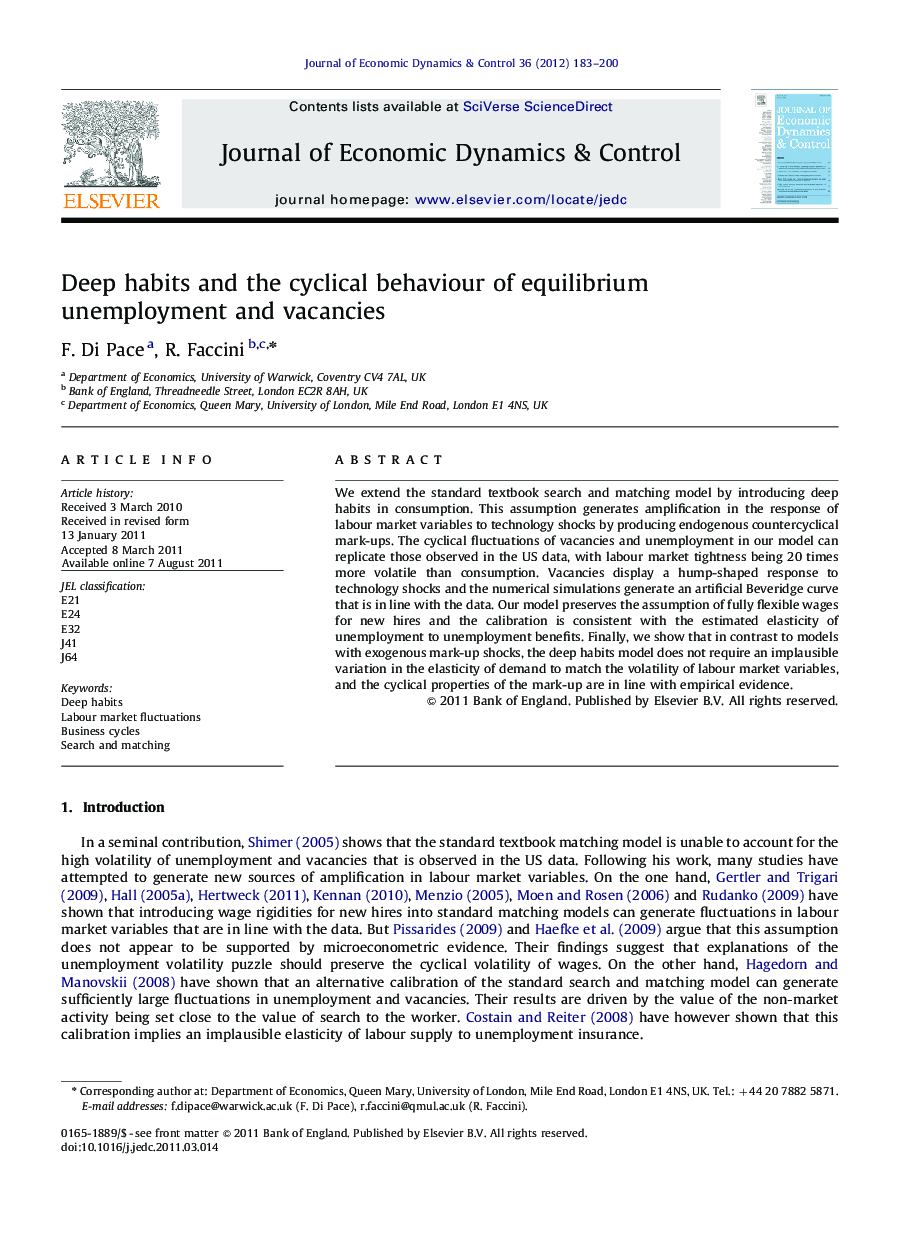| Article ID | Journal | Published Year | Pages | File Type |
|---|---|---|---|---|
| 5099054 | Journal of Economic Dynamics and Control | 2012 | 18 Pages |
Abstract
We extend the standard textbook search and matching model by introducing deep habits in consumption. This assumption generates amplification in the response of labour market variables to technology shocks by producing endogenous countercyclical mark-ups. The cyclical fluctuations of vacancies and unemployment in our model can replicate those observed in the US data, with labour market tightness being 20 times more volatile than consumption. Vacancies display a hump-shaped response to technology shocks and the numerical simulations generate an artificial Beveridge curve that is in line with the data. Our model preserves the assumption of fully flexible wages for new hires and the calibration is consistent with the estimated elasticity of unemployment to unemployment benefits. Finally, we show that in contrast to models with exogenous mark-up shocks, the deep habits model does not require an implausible variation in the elasticity of demand to match the volatility of labour market variables, and the cyclical properties of the mark-up are in line with empirical evidence.
Related Topics
Physical Sciences and Engineering
Mathematics
Control and Optimization
Authors
F. Di Pace, R. Faccini,
